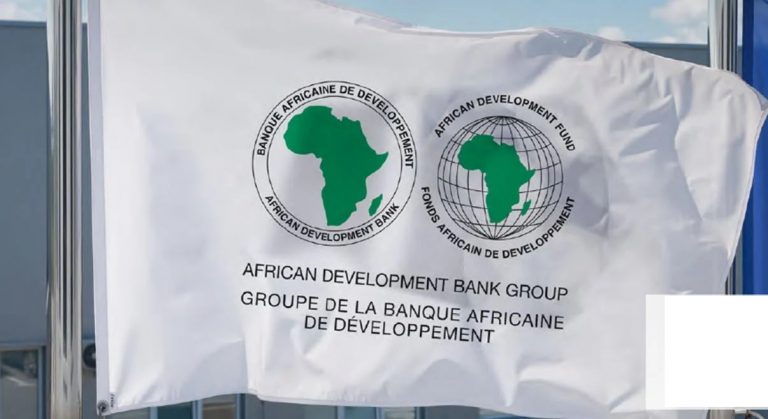
The African Development Bank (AfDB) has unveiled a new five-year Country Strategy Paper (CSP) for Nigeria, pledging to provide around $650 million annually from 2025 to 2030 — a move that could inject a total of $3.25 billion into Africa’s fourth-largest economy over five years.
The initiative forms part of the Bank’s broader effort to scale up development financing across Africa, after years of lamenting the region’s chronic underfunding and underperformance in critical sectors.
Under the first phase of the strategy, Nigeria is set to receive $2.95 billion in AfDB financing between 2025 and 2029, complemented by an additional $3.21 billion in co-financing from development partners. The Bank says the strategy seeks to unlock inclusive growth, create millions of jobs, and support the country’s ambition to double the size of its economy to $1 trillion.
Register for Tekedia Mini-MBA edition 19 (Feb 9 – May 2, 2026).
Register for Tekedia AI in Business Masterclass.
Join Tekedia Capital Syndicate and co-invest in great global startups.
Register for Tekedia AI Lab.
But the plan, though ambitious in scope, is already generating anxiety over the likelihood of the funds being squandered — especially in a country long plagued by corruption, lack of transparency, and poor implementation of past international interventions.
AfDB’s Bigger Push Across Africa
The development financing drive in Nigeria is part of AfDB’s broader shift to address what it has repeatedly described as “Africa’s chronic development financing gap.” The continent, according to the Bank’s leadership, needs between $68–$108 billion annually just to bridge its infrastructure deficit, yet struggles to mobilize even a fraction of that due to global funding imbalances, investor hesitation, and weak domestic capacity.
AfDB President Akinwumi Adesina has in several public addresses decried the low share of global development finance that comes into Africa, pointing out that African countries, despite being the most vulnerable to climate shocks and infrastructure shortfalls, receive less than 5% of global climate financing.
In response, the Bank is increasing its commitments, establishing funding mechanisms, attracting partners, and ramping up its country-specific strategies. Nigeria, being its largest shareholder and the continent’s most populous nation, is now a key focus of this recalibrated approach.
Yet, while AfDB is scaling up its lending, there is an equally significant challenge on the receiving end — how to ensure that funds are not diverted or wasted.
Nigeria’s History of Missed Opportunities
Nigeria’s infrastructure and social development deficits are well-documented. From power outages that cripple industries to dilapidated roads and a water system that excludes millions, the country has struggled for decades to turn financial aid and loans into tangible improvements. And the problem has rarely been the lack of money, but how it’s managed or mismanaged.
The corruption risks surrounding Nigeria’s institutions remain a deep concern. The country consistently ranks low on Transparency International’s Corruption Perceptions Index, and there have been repeated cases of funds meant for roads, hospitals, education, and power being embezzled or misused. Several state and federal agencies have been implicated in the misappropriation of donor funds in the past, leading to disillusionment among international partners.
This new wave of AfDB funding, while promising, has not yet been accompanied by any enforceable safeguards to guarantee accountability. There is currently no clear mechanism outlined in the strategy to monitor how funds will be deployed.
Development analysts have raised red flags over this.
Aside from the concerns, the strategy itself is one of the most ambitious in recent memory. It focuses on two priority areas:
- Promoting sustainable, climate-smart infrastructure to improve industrial competitiveness — including roads, power, and water systems;
- Driving inclusive green growth by supporting agro-industrialization and job creation for youth and women.
Nigeria’s infrastructure gap is estimated at $2.3 trillion between 2020 and 2043, and the Bank believes targeted investments in renewable energy, clean transport systems, and resilient agricultural infrastructure could significantly lower business costs and unlock new economic zones.
AfDB projects that the strategy could generate 1.56 million jobs, mostly through agribusiness expansion, youth-focused training schemes, and the scaling up of support for women-led enterprises. The Bank’s Affirmative Finance Action for Women in Africa (AFAWA) programme will be deployed in Nigeria to provide tailored financial access to female entrepreneurs — a move long overdue given their disproportionate exclusion from credit markets.
The plan is also aligned with Nigeria’s own development blueprint — including Agenda 2050, the National Development Plan 2021–2025, and the Tinubu administration’s Renewed Hope Agenda.
AfDB said the strategy would also support Nigeria’s ability to take advantage of the African Continental Free Trade Area (AfCFTA) by boosting energy access, upgrading logistics networks, and connecting farmers and businesses to larger markets.
Rural Focus, But No Guarantees
Millions of Nigerians, particularly in rural communities, small towns, and marginalized groups — are expected to benefit from improved services and economic opportunities if the strategy is implemented faithfully. However, this remains a big “if”.
The absence of a rigorous auditing system, transparent tracking, and public engagement mechanisms may erode the potential impact. It is believed that in the current Nigerian context, where even state-level budgets are rarely published and procurement is often opaque, the AfDB’s assumption of effective implementation is overly optimistic.
However, Abdul Kamara, Director General of the AfDB’s Nigeria Office, expressed confidence in the transformative potential of the plan.
“By investing in sustainable infrastructure and inclusive agricultural growth, we are not only building roads, power systems, and transforming agriculture – we are building pathways to prosperity for millions of Nigerians,” Kamara said.
Still, for many Nigerians, the announcement is bittersweet — hopeful on the surface, but laced with the familiar fear that another windfall may end up benefiting only a few at the top.



